All Contents
-
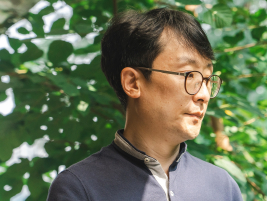
- Calling Kim Soon-ak’s “Names”: An Interview with “Comfort” Director Emmanuel Moonchil Park
-
Kim Soon-ak was referred to by countless names throughout her life: As we can guess from her multiple names, her life was full of twists and turns we didn’t know or didn’t want to know about.
-
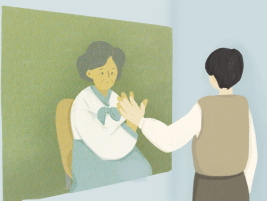
- What Sensations Do Artificial Intelligence(AI)-Based Testimonies of Presence Create?
-
the blanks in written language can connect us to the past more powerfully than the original voice, depending on how we relate to the testimonies.
-
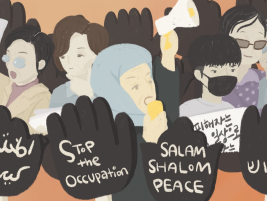
- Women’s Solidarity in Our Troubled Times of Gendered Violence and War
-
The Research Institute on Japanese Military Sexual Slavery organized an interview between philosopher Rada Iveković and anthropologist Young-Gyung Paik.
-
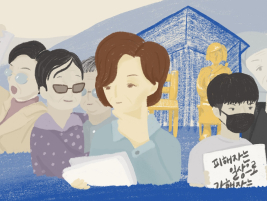
- Beyond Nationalism: The Ongoing History of the “Comfort Women” and Gender Politics
-
The Research Institute on Japanese Military Sexual Slavery (RIMSS) has organized a special discussion with historian Carol Gluck and feminist anthropologist Eun-Shil Kim to comme
-
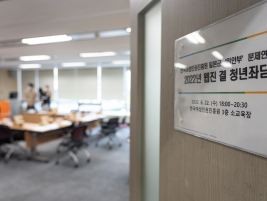
- Here and now, what is the “issue” of Comfort Women for the Japanese military?
-
Now that a considerable amount of time has passed since the issue of the Japanese military “Comfort Women” was publicized, what are the questions young researchers are asking here?
-
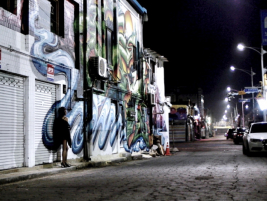
- Problems in the Ethics of Female Representation
-
A Conversation between Gina Kim and Han Sang Kim
-
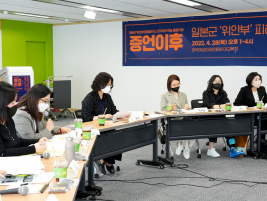
- Rediscovering “Our” Issues in “Their” Fight: Review of the “After Testimony” Colloquium
-
A ‘House of Justice’ without justice, a history war without truth
-
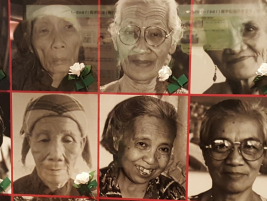
- Your Name
-
In the era of “One Left” illustrated in a novel written by author Kim Soom, what we have to do now is not count the number of government-registered survivors, but call out the names of “the drowned” between 240 and 200,000 victims and “save” those who are still drowning.
-
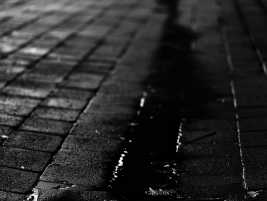
- Gazing at the “Death Pit” and Representation of the Memories of “Comfort Women” Victims
-
She deals with the issues of how the victimization of women in the post-colonial Korean society is represented, what type of gaze operates here, and what the gaze ultimately strives to see.
-
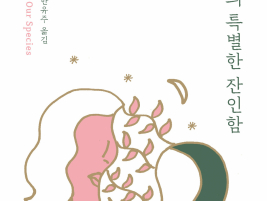
- The voices that rolled inside bodies – Emily Jungmin Yoon’s collection of poems A Cruelty Special to Our Species
-
Similar to what the researchers considered in the fourth collection of testimonies, the line placement and long pauses in Emily Jungmin Yoon’s poems would be the mimesis for the testifiers’ persistent pain, long silence, faltering, and hesitation that are manifested through poetic deviation.